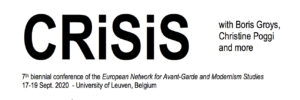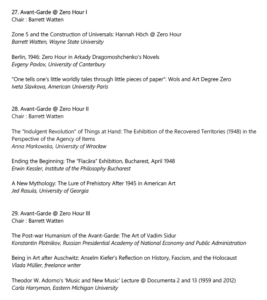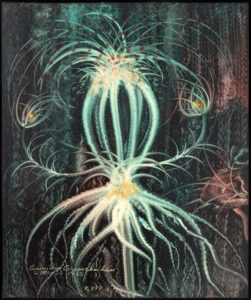The weekend of 17–20 September was to have been seventh in a series of biennial conferences of the European Network for Avant-Garde and Modernist Studies (EAM). I have been presenting at EAM since their first meeting in Ghent, Belgium, in 2008. Each of the meetings that followed was remarkable, and opened a window onto new vistas on the aesthetics and politics, in fact the historical importance, of avant-garde and modernist studies—an expanding field that departs significantly from its Eurocentric origins and turns toward postcolonial and post-socialist contexts. The latter was encouraged by meetings in Poznan, Poland, and Helsinki, Finland, where I met a number of Eastern European scholars, and that connection is an important aspect of my organization of a seminar on “Avant-Garde @ Zero Hour.” The seminar was to focus on radical formal innovation in the crisis of the immediate postwar period, seeking different frameworks for the avant-garde than those that define the “historical avant-garde”—seeking a different register of the historical, in fact, one that eschews any form of progressive historicism for the crisis, destruction, discontinuity, and universality that attends the Zero Hour.
As it happened, the conference was canceled due to the current crisis. Much reflection may follow on the nature, and specificity, of “crisis” in its many instances. My proposal for the seminar may be found here; the conference CFP is linked here and above; and below is the line-up for our seminar. I will update this page with a link to full conference program soon; while the organizers have proposed a conference volume on our evolving understanding of crisis, with the avant-garde as both instance and guide.














